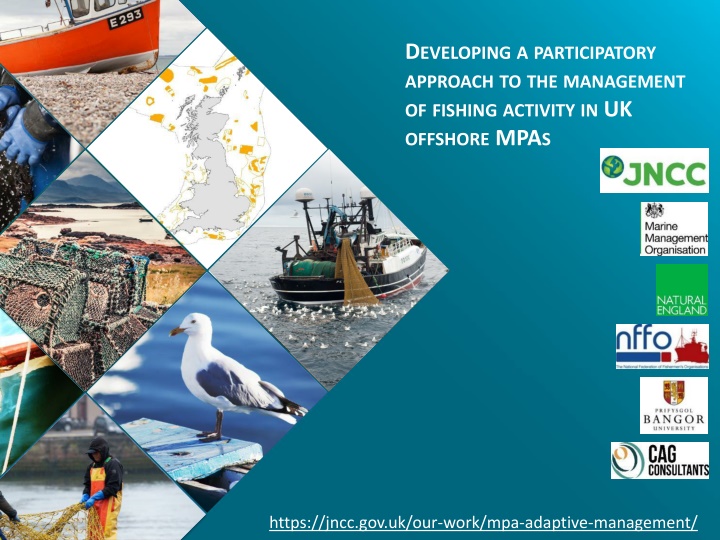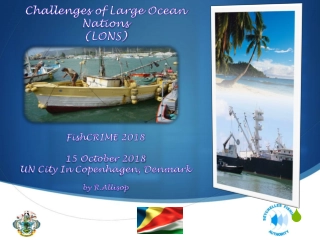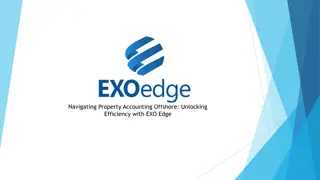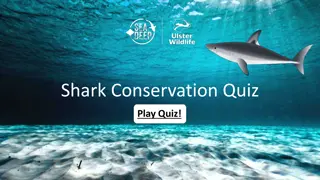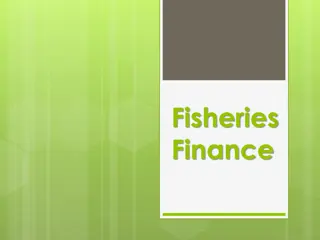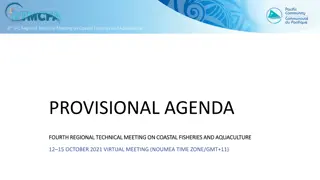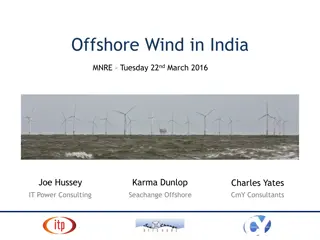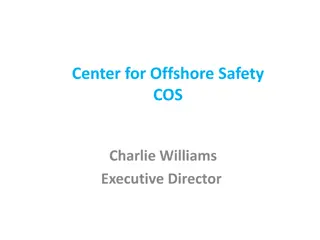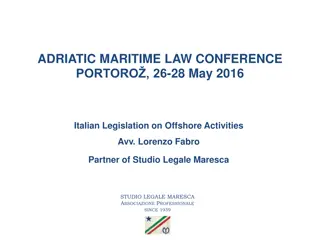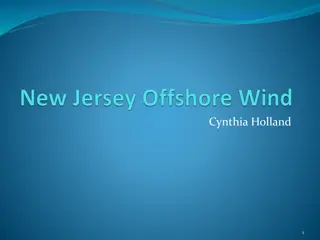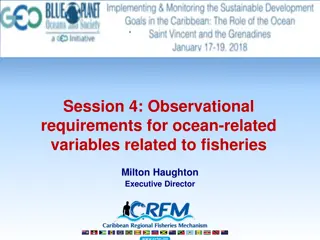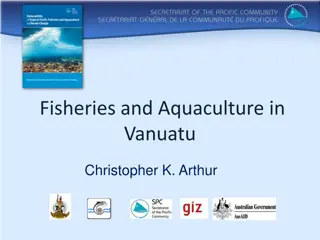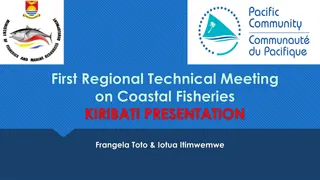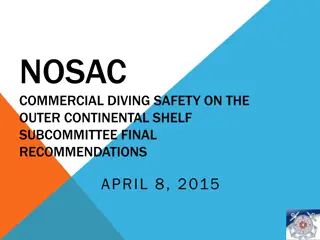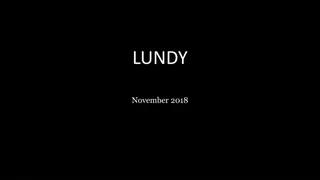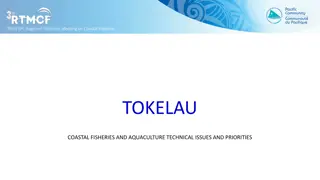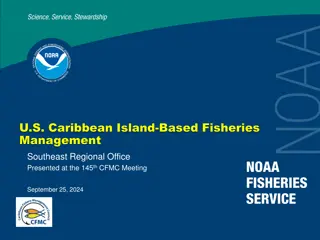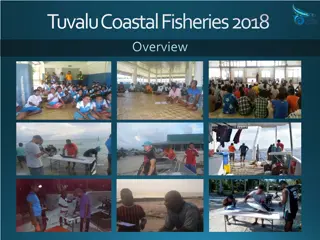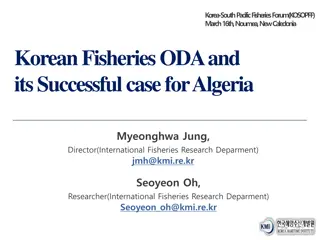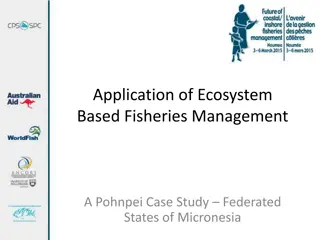Developing a Participatory Approach to Fisheries Management in UK Offshore MPAs
The 2-year project launched in April 2018 aims to address uncertainty around fishing impacts in offshore environments by engaging key stakeholders through Adaptive Management. The project focuses on developing a consistent approach for managing sedimentary habitats in light of scientific uncertainty, with outcomes including a participatory process, ecological outcome prediction model, and MPA management toolkit.
Download Presentation

Please find below an Image/Link to download the presentation.
The content on the website is provided AS IS for your information and personal use only. It may not be sold, licensed, or shared on other websites without obtaining consent from the author.If you encounter any issues during the download, it is possible that the publisher has removed the file from their server.
You are allowed to download the files provided on this website for personal or commercial use, subject to the condition that they are used lawfully. All files are the property of their respective owners.
The content on the website is provided AS IS for your information and personal use only. It may not be sold, licensed, or shared on other websites without obtaining consent from the author.
E N D
Presentation Transcript
DEVELOPING A PARTICIPATORY APPROACH TO THE MANAGEMENT OF FISHING ACTIVITY IN UK OFFSHORE MPAS https://jncc.gov.uk/our-work/mpa-adaptive-management/
DEVELOPINGAPARTICIPATORYAPPROACHTOTHEMANAGEMENT OFFISHINGACTIVITYIN UK OFFSHORE MPAS 2 year project, launched in April 2018 Funded by European Maritime and Fisheries Fund (EMFF) Focused on offshore waters around England PROJECTPARTNERS:
THEPROBLEM Uncertainty around impacts of fishing on sedimentary habitats in offshore environments reduces confidence in the evidence base available on which to make management decisions. Challenges remain around new and innovative ways of engaging stakeholders in management decision making.
OURSOLUTION Using Adaptive Management as a forum for generating a participatory approach to management Involving key stakeholders (fishing sector, eNGOs, regulators, scientific advisors & academic researchers) and building stakeholder stewardship to develop a consistent approach for managing sedimentary habitats in light of scientific uncertainty
PROJECT OUTCOMES FULLYTESTEDFRAMEWORKFOR MPA MANAGEMENTANDASSOCIATEDTOOLSTODELIVERA PARTICIPATORYAPPROACHFORMANAGINGFISHINGACTIVITYIN MPAS; 1. Delivery of a participatory process to integrate stakeholders within the management review process; 2. Development of model to predict ecological outcomes of different management scenarios; 3. Development of an MPA management toolkit, to guide advisors, regulators and stakeholders in future management reviews
1. DELIVERINGOFAPARTICIPATORYFRAMEWORKPROCESS OUTPUTSWEREGAINEDTHROUGHASERIESOFDISCUSSIONSESSIONS, WHEREBY QUESTIONSWEREADDRESSEDANDDISCUSSED, AIDEDBYINDEPENDENTFACILITATORS. WORKSHOP 3A & 3B (REGIONAL) WORKSHOP 2A & 2B (REGIONAL) WORKSHOP 4 (NATIONAL) WORKSHOP 1 (NATIONAL) Achieve shared understanding Set the scene Best practice and consensus building Triggers for management review Discuss variations in approaches & solutions from regional workshops Desk-based review Governance framework options for adaptive management Data requirements for a management plan Lessons learned Project aims, objectives & outputs Future recommendations https://jncc.gov.uk/our-work/workshop-reports-and-presentations/
PRINCIPLESOFSTAKEHOLDERENGAGEMENT Respect Shared Understanding Participation Boundaries Effective Stakeholder Engagement Communication Future Proofing
2. ECOLOGICALMODELTOPREDICTMANAGEMENTOUTCOMES Benthic Impacts Tool What is the purpose? To understand and manage impacts of fishing on the benthic community in a quantitative way. How does it work? Uses Relative Benthic Status to forecast potential impacts of different management scenarios on benthic communities. Who is it for? User manual available on the project webpage and the R script behind the tool is available on request through GitHub More information contact: Jan Geert Hiddink (Bangor University) https://jncc.gov.uk/our- work/mpa-fisheries-management- toolkit/#benthic-impacts-tool
RELATIVE BENTHIC STATUS (RBS) MODEL ??????? ?????? ????????? ???? ???????? ???? RBS = ? Depletion rates of fishing gears = Complete depletion = 60% of biomass remaining Fraction of animals in each longevity class in each habitat (recovery rate) = No depletion Pitcher, C.R., et al (2017) Estimating the sustainability of towed fishing-gear impacts on seabed habitats: a simple quantitative risk assessment method applicable to data-limited fisheries. Methods in Ecology and Evolution, 8, 472-480.
PUBLICLYAVAILABLEVIA: PLEASECONTACT: Jan Geert Hiddink @ Bangor University BENTHIC IMPACTS TOOLOUTPUT Example of data output (please note this is not of an existing MPA) Habitat Map RBS before RBS after Change in RBS
3. THE MPA FISHERIES MANAGEMENT TOOLKIT Driving purpose Decision making Roles and responsibilities Developing a participatory approach to the management of fishing activity in offshore MPAs Stakeholder engagement Data & Evidence Logistics http://www.jncc.gov.uk/our-work/mpa-fisheries-management-toolkit/ .
PROJECT LEGACY Raising awareness through presentations, news articles & social media North Sea Advisory Council Ecosystem Working Group (March 2019) SeaFish Common Language Group meeting (July 2019) MASTs (October 2019) Coastal Futures (January 2020) Introduction to Sustainable Fisheries Workshop (February 2020) Association of IFCAs MPA conference (March 2020) Nature News Article (Spring 2020 edition) https://jncc.gov.uk/our-work/mpa-adaptive-management/ Accessible resources on the dedicated webpage: MPA Management toolkit Benthic Impacts Tool user manual Key messages video Presentation Project Report Workshop reports & associated presentations
FORMOREINFORMATIONCONTACT: LOUISA.JONES@JNCC.GOV.UKORVISIT: https://jncc.gov.uk/our-work/mpa-adaptive-management/
